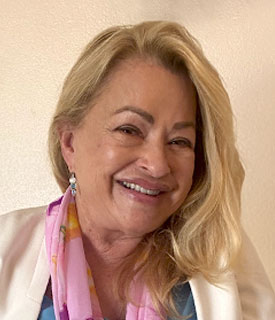- Home
- Intervention
Model of Intervention
A Dual-Diagnosis Approach to Breaking the Hold of Mental Illness and Addiction on the Sufferer and Their Family.
Intervention Model
- Mental Illness is a Family Illness
- If Nothing Changes, Nothing Changes
- The Crownview Co-occurring Program
- Case Management
- Download our Brochure
Crownview’s Co-occurring Model of Intervention
Crownview’s Co-occurring intervention is much more than “crisis management.” Beyond immersing the sufferer in an intensive therapy program, it helps the family identify the roles and patterns that may not be healthy and replace them with ones that are. We educate family members on the difference between “support” and “enabling,” the nature of mental illness and addiction, how to best support your loved one by establishing healthy boundaries, and how to create a stable life despite the challenges of living with mental illness. In a family united in their understanding and committed to the right approach, the sufferer and their family can get the full benefit of professional care, and potentially return to a fulfilling life.
This vital, proven method of co-occurring (or dual diagnosis) treatment is designed specifically to help those suffering from severe psychiatric conditions, usually coupled with substance abuse. Many of our interventions involve individuals experiencing bi-polar/schizophrenia disorders, mania, depression and PTSD. We consistently show a high rate of success. Our intervention model, developed in 2006, combines the proven skills of the Johnson Model of Intervention with the comprehensive professional experience of Crownview’s psychiatrists, psychologists, and marriage and family therapists.
Mental Illness Is a Family Illness
With mental illness, the sufferer has a disabling disease of the mind, and the brain does not recognize when the brain is ill. There is often denial of the condition, resistance to therapy, and refusal to take medications. Even with effective treatment, the rate of recovery is often many times slower than recovery from addiction alone. There can be frequent setbacks that cripple any feelings of hopefulness.
When the family gives up hope in conventional treatment, they (or the sufferer) may walk away from therapy and attempt to deal with the illness themselves. Predictably this increases co-dependency and collective enabling, where the sufferer learns to manipulate the system in order to control the unhealthy status quo, to the detriment of all. The family will become desensitized to the sufferer’s behavior, where the sense of “normal” shifts increasingly towards the dysfunctional, leading to a paralysis of positive action.
If Nothing Changes, Nothing Changes
When mental illness afflicts a family, the best response is for all members to quickly seek professional help so they can collectively respond to the illness in healthy ways. This rarely happens, and in most cases the opposite occurs. For many, fear of the potentially healing “unknowns” is greater than fear of the dysfunctional “knowns.” The family will reflexively struggle to maintain the status quo (called homeostasis), despite the suffering it brings. Until all the key players are able to see their role in the situation, and are willing to take the steps necessary to bring positive change, there is little hope for long-term recovery.
What can turn this around? Generally, change is initiated by a family member, very often a sibling, who has the perspective of an “emotionally invested” person with a clear-eyed objectivity. That balance of deep caring and humane detachment is key, and serves as an anchoring influence in the intervention process. With this, a CCOM Intervention has a strong starting point to build on.
The Crownview Co-occurring Program
The Crownview’s Co-occurring Intervention Program includes the following components:
- Initial Assessment
- Team Selection
- Logistical Coordination
- Treatment Planning
- Education and Training
- Rehearsal
- Intervention
Case Management
The admissions process and treatment program is coordinated by the Interventionists, and timely updates are provided to the rest of the Team. When the sufferer is released from this treatment, they are turned over to the Team for the next stage of care – Case Management. Click here to learn more.
INPATIENT & OUTPATIENT
TREATMENT
158 C Avenue, Coronado
CA 92118

























